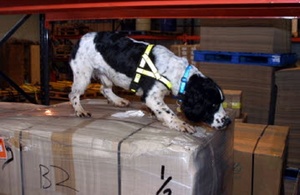Bees’ Needs Week buzzes into action
At the start of Bees’ Needs Week, new research today (Monday 18 July) revealed that improving pollinator populations could help stabilise the production of important crops like oilseeds and fruit.
The new research, published by the University of Reading, found that crops visited by pollinators had more stable yields, with 32% less variation than those crops grown in the absence of pollinators.
Thousands of pollinators – bumblebees, butterflies, moths, flies and honeybees – are essential for food production and biodiversity. But they are under threat, facing growing challenges from climate change, pests and diseases, invasive species and habitat loss.
This year Bees’ Needs Week (18 – 24 July) makes a call on the public to take Five Simple Actions to help pollinators.
These actions are easy to do, and it doesn’t matter how much space is available – every action, big or small, counts. To sustain bee populations, everyone can:
- Grow more flowers, shrubs and trees
- Let your garden grow wild
- Cut your grass less often
- Don’t disturb insect nest and hibernation spots
- Think carefully about whether to use pesticides
Monitoring for insects in your local area is also a great way to help scientists understand what pollinator populations look like. The Pollinator Monitoring Scheme is the first scheme in the world to generate data on the abundance of bees, hoverflies and other flower-visiting insects at a national scale. It will provide information that will help us measure trends in pollinator populations and target conservation efforts.
This summer, thousands of people will be taking part in a Flower-Insect-Timed Count (FIT Count) and as part of Bees’ Needs Week, the public are being encouraged to take part. Anyone can get involved by taking ten minutes to observe flowers and insects in good weather before sharing the information on the app. FIT Counts can be completed anywhere, wherever there is an abundance of flowers, and every observation helps improve survey records and knowledge of pollinator activity.
Biodiversity Minister Lord Benyon said:
From bumblebees to moths and butterflies, pollinators are a critical part of our natural ecosystem, playing an essential role in upholding biodiversity and food production.
Creating wildflower meadows, insect hotels or even a humble window box will boost nature. We can all play our part to support our vital pollinators.
Marian Spain, chief executive of Natural England, said:
Pollinators are a crucial part of a healthy environment which we all depend on. There are many things we can do to help them thrive, from getting involved in monitoring their numbers to leaving any outdoor space we have to flourish. Collectively, even small actions all help pollinators do the job we need them to”.
Bees’ Needs Week, coincides with the ‘Superbloom’, a thriving natural landscape planted in the iconic moat at the Tower of London. The University of Reading’s Bee Team will be on site today (Monday 18 July), showcasing their projects which display buzzing bumblebee colonies, the world of pollinators through the microscope, and activities to help the public to understand how everyday shopping relies on pollination.
Dr Jake Bishop, from the University of Reading’s Bee Team, who led the new study, said:
This research reminds us just how much we need to look after our pollinating heroes.
Our study shows how important bees and pollinating insects are for our food security. Every gardener, farmer and landowner in the UK can make a big difference to bees by making small changes to how they mow, grow or spray.
This Bees’ Needs Week, Defra will also be launching the 2022 Bees’ Needs Champions Awards which celebrate the outstanding action taken by community groups, businesses and farmers to protect pollinators.
To learn more about the awards and apply visit: Bees’ Needs – GOV.UK (www.gov.uk)
Notes to editors:
- Bees’ Needs Week is supported by the Pollinator Advisory Steering Group (PASG) – members include beekeeping partners, eNGOs, academic partners and government departments
- To find out more about the Pollinator Monitoring Scheme and FIT counts visit: UK Pollinator Monitoring Scheme
- The Pollinator Action Plan published in May 2022 sets out the government’s plan to protect pollinator habitats and help them thrive. The action plan builds on, and is informed by, the National Pollinator Strategy, a ten-year project which sees collaboration with farmers, conservationists and businesses to address the pressures pollinators are facing and improve habitats.


